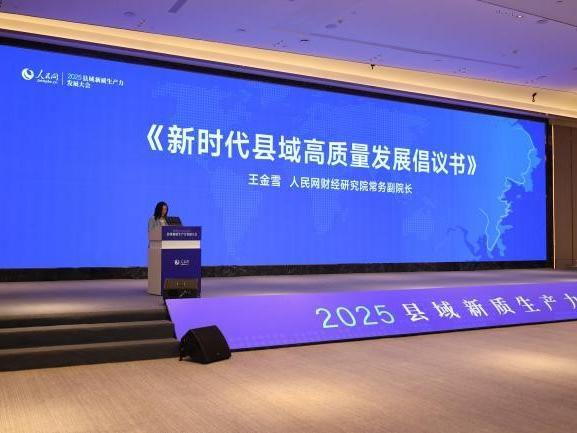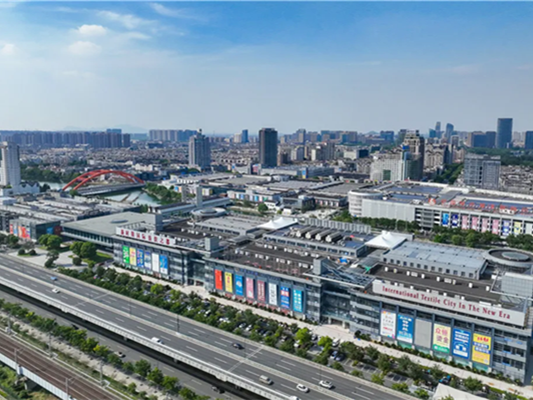China has remained the world’s largest producer and exporter of canned food, with its output accounting for nearly 25 percent of the world’s total, and is being exported to nearly 200 countries and regions.
In 2022, China exported nearly 3.13 million tons of canned food valued at $6.89 billion, making its best performance in terms of export volume and value in the past six years.
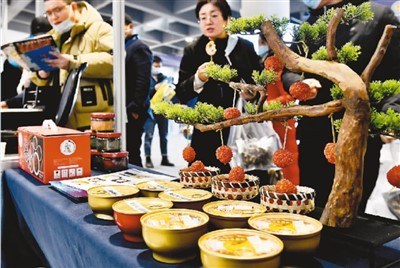
Photo shows visitors at the 2023 China (Rizhao) Marine Food Ready-Made Dishes Development Conference, which kicked off in Rizhao city, east China’s Shandong Province, Feb. 24, 2023. (Xinhua/Guo Xulei)
“China’s rich resources and increased output of quality canned food at a competitive price year after year have created favorable conditions for the export of canned food,” observed Liu Youqian, secretary-general of the China Canned Food Industry Association (CCFIA).
Zhangzhou Tan Co., Ltd. is a food company based in Zhangzhou city, southeast China’s Fujian Province. It began exporting canned food in 2003, and has exported such to 145 countries and regions. The company’s export volume of canned food surged more than 20 percent from 2019 to 2022.
Chen Junxing, the president of the company, said he chose to export canned food because he found that canned goods account for 20 to 30 percent of products in consumers’ carts in many places overseas.
Zhejiang Taizhou Yiguan Food Co., Ltd. based in Taizhou city, east China’s Zhejiang Province is known for its canned fruits. Over 90 percent of its canned oranges, yellow peaches and loquats are exported to its main overseas markets in developed countries and regions, including Japan, the U.S., and Western Europe.
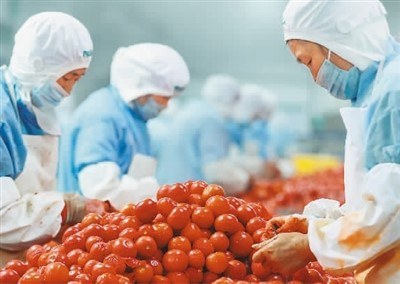
Employees of an agricultural group produce canned tomatoes in Zigui county, central China’s Hubei Province. Food companies in the county export canned tomatoes to Europe, the U.S., the Middle East, and the Asia-Pacific region. (Photo/Wang Gang)
Huang Hongge, general manager of the company, said that China’s annual export volume of canned oranges has been kept above 250,000 tons for years, accounting for about 62.5 percent to 71.4 percent of the world’s total.
“Leveraging the advantages of raw materials and production and processing brought by the development of China’s citrus industry, Chinese enterprises stand out from their global counterparts,” Huang said.
Chinese companies, as latecomers in the canned food industry, have gained advantages through technological innovation.
“At first, we imported a citrus fruit peeler from Spain, but it was not applicable because citrus fruits grown in China are different from those in foreign countries. We then cooperated with research institutes in developing automatic citrus fruit peelers and finally succeeded after more than 10 years of efforts,” Huang said.
In the past two years, Huang’s company has made some manufacturing procedures more automated and smarter.
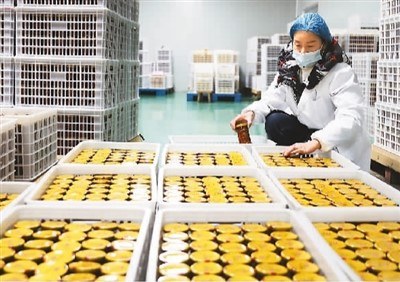
A worker packs canned food at a workshop of an agricultural product company in Yichun city, east China’s Jiangxi Province. (Photo/Chen Qihai)
According to Huang, it took 4,000 workers 90 days to produce 20,000 tons of canned oranges 10 years ago, but now 2,000 workers can manufacture 30,000 tons of canned oranges in the same period.
Liu explained that automated production was basically achieved in terms of the main types of canned food in China during the 13th Five-Year Plan period (2016-2020), which increased productivity, expanded production capacity, and reduced labor costs.
Meanwhile, more and more Chinese companies have placed importance on brand-building. Zhangzhou Tan Co., Ltd. decided to run its own factory three years ago.
By embracing technological innovation and new consumption trends in the domestic market, the company rolled out new products domestically and then introduced some of these products to international markets.
Ningbo Today Food Co., Ltd., a large tuna manufacturer in Zhejiang Province, also pays more attention to brand-building. The company is developing tuna products favored by domestic consumers and promoting the deep processing of tuna products.
“Now, domestic companies realize that they have to create brands to raise the added value of their products,” said Chen Yifang, president of the company, adding that the huge domestic market creates opportunities for Chinese companies to build brands, an important step for them to expand global business.
Editor: Xiao Da
